“Heroic Flexibility”
When Hassan Rouhani became president in 2013, the Iranian public was not aware that the United States and Iran had held secret nuclear talks in Oman, with the Supreme Leader’s permission.
However, from the beginning of Rouhani’s presidency, there was little doubt that his priority was to reach a nuclear agreement with the US. It also seemed that Ayatollah Khamenei had finally realized that the Islamic Republic could not economically survive if the sanctions were not lifted, despite his decade-long statements that the sanctions could not seriously affect Iran’s economy.
The Supreme Leader’s stance became more clear a week before President Rouhani’s first trip to New York to participate in the UN General Assembly in September 2013, when the Leader announced his belief in "diplomacy" and the principle of "heroic flexibility". A few months later, Khamenei said that "heroic flexibility" was merely a tactic to "defeat" the enemy, but the fact that Iranian and American foreign ministers had started unprecedented face-to-face talks proved that the Leader, regardless of his public statements, had substantially changed his supposedly inflexible position regarding the nuclear program.
In the new round of nuclear talks, Iran negotiated with the five permanent members of the United Nations Security Council plus Germany and the European Union. Nevertheless, it was evident that the major negotiators were the foreign minister of Iran and the US Secretary of State. On July 14, 2015, Iran and world powers reached a nuclear agreement, the Joint Comprehensive Plan of Action (JCPOA).
The nuclear agreement created great expectations inside and outside Iran about the possibility of Tehran’s flexibility over a number of other controversial issues. Some of Khamenei’s remarks on the prospects of further negotiations had specifically strengthened this perception. For instance, in April 2015, three months before the completion of the JCPOA, the Leader said if the nuclear agreement led to positive results for the Islamic Republic, Tehran might consider negotiating over “another issue” (however, he also warned that if it was not the case, the Iranian regime would return to its uncompromising attitude pre-nuclear talks).
JCPOA-related expectations were such that in March 2016, eight months after the finalization of the 2015 nuclear agreement, Hassan Rouhani suggested that the Islamic Republic should plan for “JCPOA 2” in order to secure high economic growth for the country. Rouhani’s remarks were widely interpreted as an indication of the Iranian regime’s pragmatic decision to cooperate more closely with the West, including the US.
Nevertheless, the Iranian president, like many other people, had apparently overestimated the Leader’s flexibility. Just a day after the president’s JCPOA 2 remarks were made, Ayatollah Khamenei had harsh criticism for anyone he saw as being willing to “talk to America” in the name of “the JCPOA 2, 3 or 4” under the pretext of “solving people’s problems." The Leader emphasized that this approach could lead to the Islamic Republic’s retreat from “supporting the nations of Palestine, Yemen and Bahrain” in exchange for a rapprochement with the US.
In March 2016, the Revolutionary Guards (IRGC) also delivered a provocative message to the international community by launching a number of ballistic missiles, some of which displayed the following message in Hebrew: “Israel must vanish from the arena of time.” This symbolic act was only one of similar controversial measures that the IRGC undertook, with the full support of the Leader, in the post-JCPOA era, during which the IRGC benefited from the country’s newly-increased oil revenue to escalate its influence in the region, as well as its strategic investments in missile projects.
The Trump Era
Despite the financial benefits of the JCPOA, Ayatollah Khamenei became increasingly critical of the limited effect of the nuclear agreement on Iran’s economy. The agreement resulted in the lifting of international sanctions on Iran’s oil exports and its financial transactions with other countries (except the US). However, Washington’s primary sanctions still banned Iran from making transactions in US dollars, and American entities from working with the Islamic Republic, which made many multinational companies avoid doing business with Tehran.
The situation became much more complicated for Iran when Donald Trump, as a dedicated opponent of the JCPOA, won the US presidential election in November 2016. When President Trump took office in January 2017, the new US administration gradually deescalated the implementation of the JCPOA, and finally withdrew from the nuclear agreement in May 2018.
The Trump administration’s withdrawal, which again placed international entities under the risk of US sanctions if they entered into international transactions with Iran, put huge pressure on Iran’s economy. This development practically made the JCPOA useless for the Islamic Republic, thus increasing the Leader’s pessimism about the value of any negotiation with the United States. This pessimism intensified when it became clear that the European signatories to the JCPOA had almost no power to mitigate the effect of US sanctions.
In response to Leader’s emphasis on the usefulness of engagement with the West, supporters of the nuclear agreement argued that Ayatollah Khamenei and the Leader-affiliated institutions such as the IRGC were responsible for Iran’s inability to take advantage of the JCPOA. These supporters suggested that in the post-JCPOA era, the Leader and his affiliates prevented Iran from normalizing its relations with the international community, and that they practically convinced Western and regional powers that the nuclear agreement would only result in Tehran’s more aggressive policies in the region.
However, Ayatollah Khamenei and his confidantes saw the course of events in a different way, emphasizing that the JCPOA experience had proved that the Islamic Republic could absolutely not count on the pragmatic solutions that the so-called moderates suggested to reduce tensions with the US through diplomatic negotiations.
Khamenei’s Perception of Resistance
In parallel with the decline of the JCPOA legacy, the hardliners who advocated confrontation with the US and its regional allies gained the upper hand within the Iranian regime.
They argued that despite the Rouhani administration’s failure with respect to the nuclear agreement, the IRGC had prevailed in its regional projects in Iraq, Yemen and Syria. Ayatollah Khamenei himself has been advocating this view, arguing that Iran’s recent regional and international experiences have proved the triumph of the resistance paradigm over the compromise paradigm.
The Leader and his appointees say that when Western and regional powers were dedicated to overthrowing Bashar al-Assad, and even Moscow had still not started its military intervention in Syria, the Islamic Republic, despite heavy international sanctions, was able to effectively save the Syrian regime from a possible downfall, and finally succeeded in stabilizing the regime with the help of the Russian allies.
Khamenei and his entourage also point to the IRGC’s achievements in Iraq in helping the Iraqi government against ISIS through the formation of a powerful Shia militia force in that country. Supporters of the IRGC view this Shia force as a strategic asset for the Islamic Republic that will act as a deterrence factor should Tehran face any military threat.
Finally, when it comes to Yemen, the Ayatollah’s followers believe that the IRGC’s project there has reached overwhelming victories against Saudi Arabia, which they regard as the Islamic Republic’s main enemyin the Arab world. The September 14 drone and missile attacks on Saudi Arabia’s oil facilities, which temporarily cut off abouthalf of Saudi oil exports, has particularly strengthened the position of those who support the IRGC’s Saudi-related operations. The Saudis, as well as their American and European allies, have all publicly blamed Iran for the strike, while Tehran says the operation had been carried out by the Yemenite Houthi forces. However, even if Iran did not directly carry out the September 14 attacks, there is no doubt that these attacks could not have been carried out without Iran’s military expertise and technology.
Ayatollah Khamenei avoids going into the details of any controversial operation, but clearly praises such regional activities, portraying them as substantial evidence that resistance is more beneficial for the Iranian regime than compromise.
In fact, it would appear that the Supreme Leader, especially after the lack of accomplishments emerging from the JCPOA experience, has been convinced that Tehran has no choice but to resort to uncompromising resistance against its enemies based on the ideological principles and core values of the Islamic Republic.
On the other hand, there is little doubt that the US-imposed sanctions have almost paralyzed Iran’s economy, and that the Islamic Republic will not be able to resist the sanctions in the long term.
Under such circumstances, it is widely believed that the ongoing economic pressure will finally drive the Iranian regime to show flexibility over a number of its strategic projects. The current situation provides new opportunities for the so-called moderate figures within the Islamic Republic who advocate Tehran’s engagement in bilateral talks with Washington. So far, Ayatollah Khamenei has not agreed with new Iran-US talks.
However, if Iran’s economic crisis intensifies, the Leader might be forced to resort to new pragmatic justifications to pave the way for another “heroic flexibility. This will only happen if Ayatollah Khamenei concludes that compromising over Tehran’s nuclear, missile and regional policies, which the Trump administration demands, would attribute to the removal of the US sanctions, or at least to the partial lifting of the sanctions to the level that existed before Washington’s withdrawal from the JCPOA. Otherwise, it is quite possible that Khamenei will continue to resist any proposal for a pragmatic compromise over Tehran’s strategic policies.
visit the accountability section
In this section of Iran Wire, you can contact the officials and launch your campaign for various problems




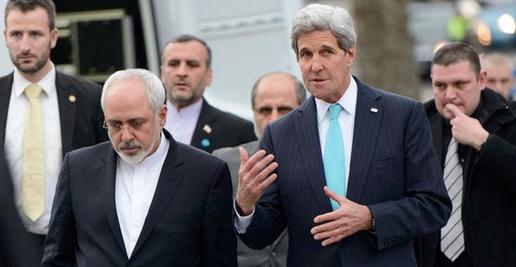

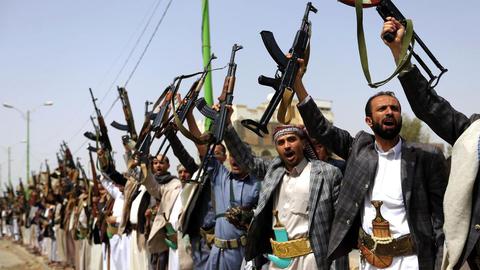
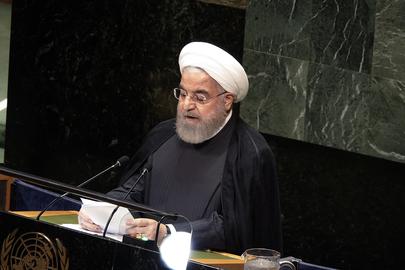
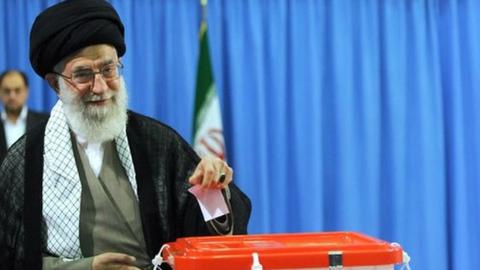




















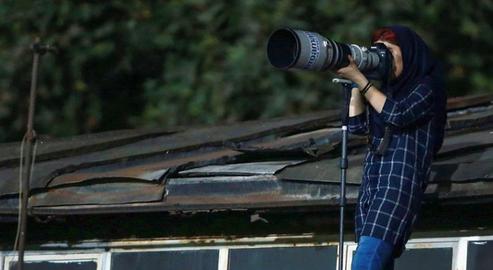
comments